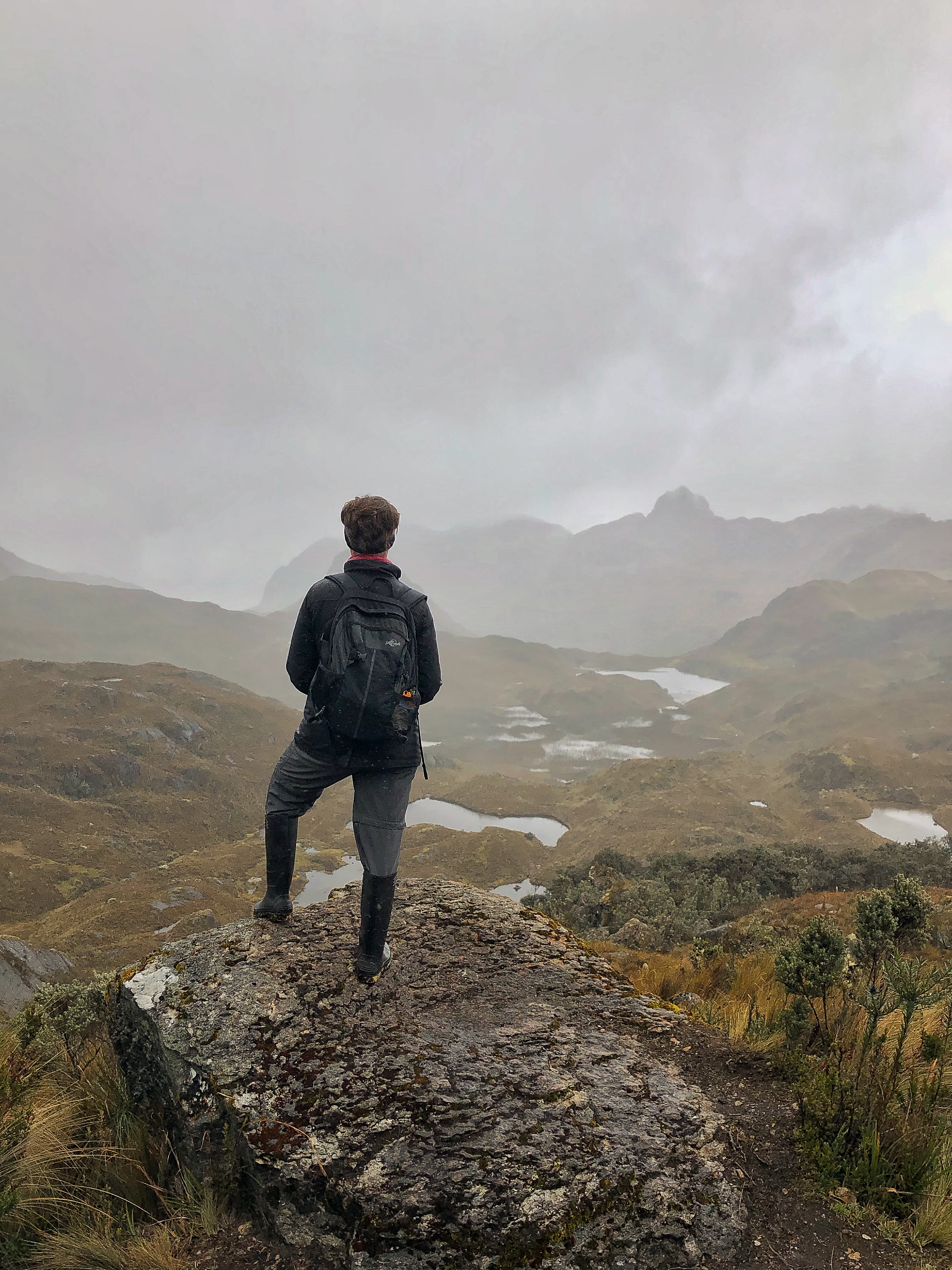The 88 Year Old Star Finder...
- Cassie Stockamp

- Oct 23, 2019
- 6 min read
Updated: Oct 24, 2019
The synchronicities of South Arica continue to amaze me. The other day I pulled up a Ted Talk that I had queued in my email over a year ago. I opened it to listen as the title sounded intriguing - “The Gift and Power of Emotional Courage.” And... of course if was a South African woman that used the analogy of apartheid to deliver her powerful talk. She conveyed a message that I needed to hear.
Of course she did.
I have wanted to write about apartheid and the aftermath, but feel I must start by noting the incredible beauty of this country, the City and its people. Rarely does a City have the natural beauty of mountains and oceans at its front door. Cape Town has the feeling of a beach town, yet it possesses the sophistication of a large city. Each suburb has a distinct personality and the multitude of bays each have their own flavor. The power of Robben Island, the beauty of Cape Point, the vistas of Table Mountain, the touristy flavor of the VA Waterfront, the hike to Lions Head, the fynbos in the Western Cape which is unique in the world... The outdoor beauty of this country is stunning. A new friend and I literally wondered around the top of Table Mountain for almost 4 hours taken aback by each vista that unfolded through the clouds. Breathtaking.
The fear is also stunning. When I arrived and found myself walking to various doctor appointments in the white suburbs, several things struck me:
99.9% of the time I was the only white person walking.
I would be greeted by the black and colored domestic workers.
I could hear the dogs barking behind fences. Tall fences.
EVERY house and EVERY business was surrounded by at least an 8 foot tall solid fence with electrified wires or shards of glass at the top.
I didn’t understand the fear that I felt - everywhere. Even the family I’m staying with, who are incredibly enlightened and active in anti-racism work, lock not only their fences, all exterior doors but also the interior doors in their home at night while they sleep to thwart off the possibility of a home invasion. The fear is palpable. I’ve since learned that in the last 6 months there have been random acts that are unpredictable and very violent across the City. The residual from apartheid, even though it is now 25 years past, has left tentacles of anger that are beginning to rage. Government has made promises to those living in the townships that haven’t been kept, and...
The parallels to the US are obvious to me, though the depth and length of apartheid made this form of institutional racism horrific. It is estimated that over 3.5 million blacks were forcibly removed from their homes (their property repossessed by the government without any form of payment) and placed in townships, often in mere sand, miles away from the City and their work. The economic impact of losing this financial asset escalates over the years... Domestic workers still today spend 40% of their income on transportation, and 78% of the country lives in poverty.
And I’m not sure if I’m naive or just aware of my surroundings, but I haven’t been afraid at any point while in South Africa. Not one ounce. Here are the demographics of Cape Town:
Total Population: 4,524,111
Colored 42.4%
Black African 38.6%
White 15.7%
Asian or Indian 1.4%
Other 1.9%
It is complicated.
And I am still in awe of what Nelson Mandela did after being held for 27 years in prison.
He forgave.
He created the Truth and Reconciliation Commission which was thought out and debated with the other black and colored political prisoners when they were held at Robben Island. This Commission created a model, the likes of which the modern world had not seen. This commission was the academic brain child of Desmond Tutu and put into action by Mandela. It created a restorative justice body where some victims and perpetrators of violence were allowed to give testimony and many, if found to be repentant and sincere, were given amnesty. Incredible.
“No one is born hating another person because of the color of his skin, or his background, or his religion. People must learn to hate, and if they can learn to hate, they can be taught to love, for love comes more naturally to the human heart than its opposite.” Nelson Mandela
Every person I have met have been incredibly kind, generous and most love this country. I engage with the Uber drivers to find that all are immigrants from other African countries that are war torn or experiencing governmental induced economic collapse. I plop myself in the front seat and openly ask if they have experienced any racism and, again, everyone of them has been gracious. The last black Uber driver said he knew that the white people were scared of him. When a white local gets in his car he finds that they sit huddled in the back corner afraid to engage, and are delighted when he starts a conversation. They then happily talk and their fear subsides. I wonder what it must be like to live with this undercurrent of fear day after day. What does it do to ones psyche and subconscious to live, work, go to school, to the doctor - behind walls...?
I wonder when and if the walls will come down? Who will be the first to take down the physical wall around their home? What developer will build the first house without a wall and start a neighborhood where the beautiful gardens the Capetonians are so proud of can be seen? When will white people feel comfortable to start walking their dogs or pushing their baby carriages through their neighborhoods....?
I wonder if it really isn’t just a different degree of what we experience back in the US? I remember moving from a quiet suburb into a beautiful near north city neighborhood and locking doors and buying a security system. I was aware of the new sensation of fear which eventually faded over time. Were the initial fears unfounded? Did it leave a mark on my psyche? Not sure.
At least the fear of the water shortage has subsided for the season here in Cape Town. It was a true crisis last year as the reservoirs were down to 11% and there were substantive discussions of bringing in an iceberg from Antartica... But one good result of water rationing and preservation tactics is that the conservation efforts have remained, and in my humble opinion, something every nation working on sustainability should follow. Signs are still posted in public restrooms reminding people to conserve water; virtually every home has a LARGE tank that holds the run off rain from roof drains which are used to water the gardens and maybe flush toilets or wash laundry. The reservoirs are full and the water supply is sound, but the citizens’ actions are now different and an ethic of conservation exists. There is a bucket in each shower which is used to catch the potable water as it warms and then used to flush the toilet or to water plants. Tubs in sinks catch rinse water which is reused and not wasted. It feels like a good thing...
As I rounded the corner from an afternoon walk, I came upon an older woman who was bent over with her hand on a tree. I went over and asked if she was ok as I wasn’t sure if she was ill. She looked up at me and started rambling about finding 200 stars. I must admit I wondered if her family knew she had gotten out, and then she said she knew she sounded crazy. And with that, she “ooooohed” and slowly bent over and placed her index finger in the soil. She lifted her hand, and low and behold, a tiny silver star was stuck on the tip of her finger... I smiled and wondered what little girl had unknowingly opened her book bag and unloaded a treasure chest for this elderly woman to discover. She informed me that she was 88 years old, and with that she dropped her hand to the ground and again placed her finger in the dirt. She brought up my shiny silver star. I thanked her and patted her shoulder. She scolded me and told me not to touch her, and bent over to begin searching again. I smiled and went on my way. Star in hand...
Magic.











What a joy to hear your impressions. TAke care.